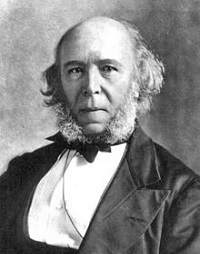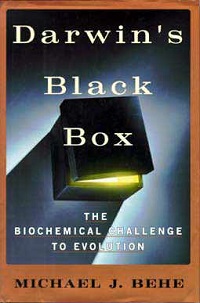TRANSLATE THIS ARTICLE
Integral World: Exploring Theories of Everything
An independent forum for a critical discussion of the integral philosophy of Ken Wilber
  Frank Visser, graduated as a psychologist of culture and religion, founded IntegralWorld in 1997. He worked as production manager for various publishing houses and as service manager for various internet companies and lives in Amsterdam. Books: Ken Wilber: Thought as Passion (SUNY, 2003), and The Corona Conspiracy: Combatting Disinformation about the Coronavirus (Kindle, 2020). Frank Visser, graduated as a psychologist of culture and religion, founded IntegralWorld in 1997. He worked as production manager for various publishing houses and as service manager for various internet companies and lives in Amsterdam. Books: Ken Wilber: Thought as Passion (SUNY, 2003), and The Corona Conspiracy: Combatting Disinformation about the Coronavirus (Kindle, 2020). Ken Wilber's Anti-Evolution EvolutionismKen Wilber Meets Ken MillerFrank Visser
Why do Miller and Wilber differ so strongly in their assessment of Intelligent Design and Neo-Darwinism? Are there any religious reasons involved?
In my previous essay "Integral Accommodationism" the book Finding Darwin's God by cell-biologist and creationism-critic Ken Miller was briefly mentioned. I made a brief comparison between his stance towards evolution, religion and Intelligent Design, and that of Wilber.[1] This topic deserves a more thorough treatment. As I noticed: Miller is a practicing Catholic and a professional biologist, who thinks there is "common ground" between science and religion. His approach to both fundamentalism and Neo-Darwinism differs starkly from Wilber's. This should, in fact, not be the case. Both authors are critical of mythic-fundamentalist religion and value science (in Wilber's case, at least in name). Integral philosophy claims to transcend and include science into a wider view of reality. Why do Miller and Wilber differ so strongly in their assessment of Intelligent Design and Neo-Darwinism? Are there any religious reasons involved? To recapitulate: Wilber has made several strongly negative comments about Neo-Darwinism, even to the point of ridiculing the scientific understanding of evolution (graphic examples to follow later in this essay) as a form of "flatland-reductionism". He has recommended Intelligent Design folks like Michael Behe, author of Darwin's Black Box (1996) to his students, in his attempt to frame standard evolutionary theory as inadeqate. At the same time he has labelled his philosophy "evolutionary", in the general sense of covering cosmological, biological, psychological and cultural evolution. Miller, in contrast, has meticulously dissected Behe's attempt at discrediting evolutionary science, arguing for the validity and success of evolutionary science. Nevertheless, Miller has objected to the anti-religion stance of most modern New Atheists, and has defended an integration of sciene and religion that still has room for his faith. When Integral philosophy claims to "transcend-and-include" science, and in this case evolutionary science, is this more than mere lip service to science? I have not seen any evidence of this in any of Wilber's writings. He has not dealt with any evolutionary topic in detail and has discussed it in the most general of terms. What is the cause of Wilber's strongly emotional aversion to standard evolutionary theory? Is he as vulnerably to emotional attachment to a certain religious view as the creationists he claims to have transcended as well? Miller's case shows that a different take on evolutionary science is possible. Isn't it highly ironic that Wilber, the anti-evolution mystic-philosopher, can learn a lot from a pro-evolution Catholic believer—who claims no special knowledge or visions to reach his conclusions?  Herbert Spencer In my opinion, Wilber's evolutionism is more Spencerian than Darwinian. Herbert Spencer (1820-1903) was an "English philosopher, biologist, anthropologist, sociologist, and prominent classical liberal political theorist of the Victorian era". He published on evolution even before Darwin did ('Progress: Its Law and Cause', 1857), and extended the notion of evolution to many other fields of science as well. He even coined the term "survival of the fittest", which Darwin started using in his own work, but not without second thoughts. His ten-volume System of Synthetic Philosophy covered the fields of biology, psychology, sociology and ethics. He was looking for general evolutionionary "principles", much like Wilber does. Quite an integral philospher, as we can read on Wikipedia:: Spencer posited that all structures in the universe develop from a simple, undifferentiated, homogeneity to a complex, differentiated, heterogeneity, while being accompanied by a process of greater integration of the differentiated parts. This evolutionary process could be found at work, Spencer believed, throughout the cosmos. It was a universal law, that was applying to the stars and the galaxies as much as to biological organisms, and to human social organisation as much as to the human mind. It differed from other scientific laws only by its greater generality, and the laws of the special sciences could be shown to be illustrations of this principle. Wilber obviously stands in this tradition, where he has claimed to have discovered general evolutionary principles (the Twenty Tenets, the "spirit of evolution", otherwise called "Eros"), which touch on all domains of existence and especially the hidden drive towards complexity science is beginning to understand in complexity science (he claims). Other than Spencer, Wilber connects this drive with spiritual philosophies, especially those of the East. It was Darwin, in Wilber's opinion as expressed in Sex, Ecology, Spirituality (1995), who "obscured" this spiritual vision of evolution "for over a century"[2]. Hence his pervasive negative evaluation of Neo-Darwinism as "flatland-reductionism". While Spencer was "one of the most-argumentative and most-discussed English thinkers of the Victorian period" (brittannica.com), he is all but forgotten. Charles Darwin is still relevant today.
‘I know evolutionary theory inside out’To illustrate Wilber's strongly emotional aversion towards Neo-Darwinism, and the self-described level of his expertise, here's a graphic example from around 2006 (which was saved for posterity on Kheper.net) taken from Integral Naked, a now defunct integral social media platform. Wilber responds to critical comments he had received regarding his misunderstanding of evolutionary theory in his A Brief History of Everything (1996) (most of which were posted on Integral World):
"Folks, give me a break on this one. I have a Master's degree in biochemistry, and a Ph.D. minus thesis in biochemistry and biophysics, with specialization in the mechanism of the visual process. I did my thesis on the photoisomerization of rhodopsin in bovine rod outer segments. I know evolutionary theory inside out, including the works of Dawkins et al. The material of mine that is being quoted is extremely popularized and simplified material for a lay audience. Publicly, virtually all scientists subscribe to neo-Darwinian theory. Privately, real scientists -- that is, those of us with graduate degrees in science who have professionally practiced it -- don't believe hardly any of its crucial tenets.

Instead of a religious preacher like Dawkins, start with something like Michael Behe's Darwin's Black Box: The Biochemical Challenge to Evolution. And then guess what? Neo-Darwinian theory can't explain shit. Deal with it.
The extensive problems with evolutionary theory as it now stands is exactly why "creation science" has made huge inroads across the country, including standing up in court cases where scientific evidence is brought in on both sides. The problem is that creation scientists -- who are almost entirely Christians - after having convincingly demonstrated that neo-Darwinian theory has loopholes large enough to drive several Hummers through then try to prove that Jehovah is in one of the Hummers. But, of course, the fact that neo-Darwinian theory cannot explain the central aspects of evolution, does not mean that a specific type of God can. But they never would make the kind of headway they have unless neo-Darwinian theory is the piece of Swiss cheese that it is. But all that this really proves, in my opinion, is that there is an Eros to the Kosmos, an Eros that scientific evolutionary theory as it is simply cannot explain. But overall integral theory doesn't hang on that particular issue. If physicalistic, materialistic, reductionistic forces turn out to give an adequate explanation to the extraordinary diversity of evolutionary unfolding, then fine, that is what we will include in integral theory. And if not, not. But so far, the "nots" have it by a staggeringly huge margin, and scientists when they are not bragging to the world, whisper this to themselves every single day of their lives. I know, I lived in that community for the better part of a decade. And it's truly fascinating, to say the least…." This is a great thread, from what I have seen of it, and I hope it continues. But please don't do so by claiming that I don't know evolutionary theory, because in that particular instance anyway, you are absolutely off your nut." This quote captures the mentality of Wilber when writing about science nicely: authoritarian, claiming expertise without demonstrating it, irritated by criticism, non-specific, casual. And especially: avoiding the real theoretical issues. There's an implicit endorsement of Intelligent Design here: referring to court cases where, Wilber claims, "scientific evidence is brought in on both sides". Nothing could be further from the truth. In these court cases Intelligent Design is confronted with scientific evidence and found wanting. This reflects the "equal treatment" or "equal time" strategy of creationists, who claim their views are as credible as those of science. Then there's the facile conclusion that "all this really proves in my opinion, is that there is an Eros to the Kosmos, an Eros that scientific evolutionary theory as it is simply cannot explain." Wilber has never taken the trouble to really investigate this field of science. He just provides sweeping statements to make his point.
This episode has been parodied brilliantly in
"Spring Branch High School-itis" by Philip Molina. If you think this is a non-representative quote from Wilber, not meant for the general public because it was aired on a private platform, here's another one, written in a similar informal spirit, but taken from his book Integral Spirituality (2006), published around the same time:
To say that the manifest universe is evolving is not necessarily to endorse all of the neo-Darwinian view of evolution. I did my graduate work in the biochemistry and biophysics of the visual process ("The photoisomerization of rhodopsin isolated from bovine rod outer segments"), and what we don't understand about the mechanism of evolution could fill the Library of Congress several times over. I'm no fan of Intelligent Design either, which is just Creation Science in drag. But you don't need an intelligent designer to realize that evolution seems to involve some sort of "creative allure," or what Whitehead called "the creative advance into novelty." That drive—Eros by any other name—seems a perfectly realistic conclusion, given the facts of evolution as we understand them. Let's just say there is plenty of room for a Kosmos of Eros. But the whole point of a post-metaphysics is that it is a strict application of Occam's razor, refusing to postulate more entities when fewer will do the trick. It's just that Eros is one of those things that just doesn't seem to go away…. (p. 236, footnote)
This is not the type of claims you will ever find either in Behe or Miller, even if they disagree completely on these matters of science. But the message is always the same (to his science-illiterate readers): contemporary evolutionary science is incapable of explaining evolutionary complexity ("Just read Behe") and we need at the very least to postulate some kind of cosmic drive towards complexity ("a strict application of Occam's razor"). Obviously, the appeal to Occam is premature, since Wilber has not taken the trouble to either study or report on the field of evolutionary science in any extensive way. Perhaps he should first apply this razor to his own "Eros-theory" of evolution? Having re-read Miller's Finding Darwin's God and having been convinced by his expert analysis and rebuttal of creationism/ID authors like Morris, Johnson and Behe, I am tempted to reply to Wilber: Instead of religious philosophers like Whitehead, start with something like Kenneth Miller's Finding Darwin's God. And then guess what? Neo-Darwian theory explains a lot. Deal with it. “we find out once again that Darwin got it right’Behe's thesis in Darwin's Black Box was that natural selection might have worked to explain morphological differences between organisms, but fails completely when the biochemical complexity of the cell is taken into account. He introduced the notion of "irreducible complexity", with the mouse trap as homely example. When something only works when all components are present, it can't have been evolved from a simpler version, is the idea. (To his credit, Darwin was aware of this weakness of his theory of natural selection, but argued that if intermediary forms could be found, his theory is saved). He covers the topics of blood clotting, the Krebs Cycle, or the cilia (whip-like structures that cells use to generate force and movement), and many more. These are is so complex and/or cover so many steps, that it is at first sight hard to see how natural selection could have produced them. Hence, some other cause for these complexities must be postulated. For Behe it is the Christian God (though he will not go further than calling it "design"), for Wilber it is his Eros. Same creationist logic.
Both Behe and Wilber are skeptical about the capacity of science to explain the evolution of complex biological phenomena. But this skepticism is suspect, because it is clearly religiously motivated. And it comes with a price: none of them have a viable theoretical alternative.
Both Behe and Wilber are skeptical about the capacity of science to explain the evolution of complex biological phenomena. But this skepticism is suspect, because it is clearly religiously motivated. And it comes with a price: none of them have a viable theoretical alternative. All they can do is bring in miracles (creationism) or mysteries (integralism) to "account" for these phenomena. Are they seriously implying that God or Eros is manufacturing molecules? Generating species? producing proto-eyes and -wings? Think about the magnitude of that task! Or, rather, start thinking at all. After meticulously having dissected and refuted Behe's arguments, Miller concludes: Michael Behe's purported biochemical challenge to evolution rests on the assertion that Darwinian mechanisms are simply not adequate to explain the existence of complex biochemical machines. Not only is he wrong, he is wrong in a most spectacular way. The biochemical machines whose origins he finds so mysterious actually provide us with powerful and compelling examples of evolution in action. When we go to the trouble of opening the black box, we find out once again that Darwin got it right. (p. 160) And as to Wilber's reckless claim that "real scientists" (to which he apparently counts himself) "don't believe hardly any of its [Neo-Darwinisms] crucial tenets", Miller would reply: In the real world of science, in the hard-bitten realities of lab bench and field station, the intellectual triumph of Darwin's great idea is total. The paradigm of evolution succeeds every day as a hardworking theory that explains new data and new ideas from scores of fields. High minded scholarship may treat evolution (and it should) as just another scientific idea that could someday be rejected on the basis of new data, but actual workers in the scientific enterprise have no such hesitation—they know that evolution works. It works as a continuing process, and it works as a historical framework that explains both present and past. (p. 165)  Kenneth R. Miller What distinguishes Miller from Wilber too, is that Miller has debated with creationists many times in public, or in court, including Michael Behe. Wilber will do no such thing. He will just on occasion tell his students "I know evolutionary theory inside out" and get away with this for decades. What is also a striking difference between Wilber's and Miller's prose, is that Miller shows us the joy of discovering things in scientific research, often after many years of trying and failure. Wilber will only present his (untested and untestable) knowledge claims, and yet claim to represent a standpoint that is superior to science. What is most striking is Wilber's anti-Darwinian stance towards evolution. Violating his own principles that integral philosophy should include science, he has obviously failed that test. He is an anti-evolution evolutionist, if you allow me such an oxymoron. And it really doesn't have to be this way. We should look for a more believable integration of science within the integral framework. AND WHAT ABOUT RELIGION?Miller may be a strong critic of Intelligent Design and mixing religion with science, but he is not against religion. Being a Catholic himself, he has argued that we should not look for God's presence in this or that biochemical or biological phenomenon, but in the very fact that evolution is possible at all. He believes in God because God created by that process. His God is more the Architect of the universe than the magician of nature. This Western view of God actually made room for science to investigate nature, he argues. Whatever theological subtleties may be involved here, this already points to a difference with Wilber. Where Miller is completely fine with evolutionary science and opposes any attempt to indicate steps in the natural processes where mysteries of miracles might occur, Wilber is always on the lookout for exactly these areas (the evolution of eyes and wings, speciation, the immune system, etc.), to prove that evolutionary science is "catastrophically incomplete" or "absolutely inadequate" (notice the mind-numbing and irrelevant use of hyperbole).
At the end of his book Miller discloses his God is actually like Darwin's (hence the title of his book Finding Darwin's God). When students ask him if he is still a believer in God, he refers them to the last paragraphs of The Origin of Species: Thus, from the war of nature, from famine and death, the most exalted object which we are capable of conceiving, namely, the production of the higher animals, directly follows. There is grandeur in this view of life, with its several powers, having been originally breathed by the Creator into a few forms or into one; and that, whilst this planet has gone cycling on according to the fixed law of gravity, from so simple a beginning endless forms most beautiful and most wonderful have been, and are being, evolved. (italics added) Please note: the phrase "by the Creator" was added by Darwin as of the second edition of the Origin and remained there in all future editions. To which Miller adds, as the very closing line of his book: What kind of God do I believe in? The answer is in those words. I believe in Darwin's God. (p. 292) Did Miller not know or realize that Darwin regretted having inserted the phrase "by the Creator" as of the second edition of Origin? As he wrote on 29 March 1863 in a letter to his friend Hooker: "But I have long regretted that I truckled to public opinion and used the Pentateuchal term of creation, by which I really meant 'appeared' by some wholly unknown process." Where does that actually leave "Darwin's God"?
Darwin's second thoughts about using the phrase "by the Creator".
(Darwin Correspondence Project) When I asked him for clarification on Twitter, he briefly replied: "Creator" appears only in the 1st edition of The Origin. Darwin was not a theist - which I make very clear. But my own belief doesn't depend on a Darwin quote. Rather, for me, "I believe in Darwin's God" means I accept evolution, and believe in a God who created by that process. (3/7/20) Actually the phrase "by the Creator" was missing only in the 1st edition, but was added in later editions. (A fact Richard E. Lenski pointed out to him in a Twitter reply.)
This is usually called theistic evolution. "Supporters of theistic evolution generally harmonize evolutionary thought with belief in God, rejecting the conflict thesis regarding the relationship between religion and science – they hold that religious teachings about creation and scientific theories of evolution need not contradict each other." As such, they are often criticized by both creationists and atheists. I don't pretend to understand how this would work out in practice—it comes across as doublespeak to me. Did God prepare the cosmic stage so that in a far future life could arise on earth, and after billions of years humans emerged? How likely is this given all the contingencies involved in evolution (not to mention the comet that killed the dinos and made room for "us" mammals)? And was this in fact how he "created" us? This seems to me to stretch the meaning of "created" to enormous lengths. A remarkable "reconciliation" of the conflict between science and religion. And not really in the spirit of Darwin. But where Miller really lost me is that he, as a theist, believes in the God of Darwin, who was not a theist... But at least Miller has managed to fully include current evolutionary science, even if he transcends it in his own Catholic faith. However that may be, Miller has helped me a lot with assessing Wilber's pronouncements about the supposed weaknesses of evolutionary theory and seeing how he is basically a creationist in mystical drag. We definitely need a different discourse around Wilber's competence and declarations regarding evolutionary science, that is up to the level of modern science communication, instead of being stuck with ex cathedra proclamations from Wilber. Here's one of Miller's many lectures (others can be found on YouTube):
The Collapse of Intelligent Design: Kenneth R. Miller Lecture, January 3, 2006
“How would Intelligent Design explain it ? Just by shrugging and saying; that's the way the Designer made it. No reason, no rhyme...” (39:00) NOTES[1] Frank Visser, "Integral Accommodationism, A Response to Brad Reynolds", www.integralworld.net, March 2020. [2] Frank Visser, "'Precisely nothing new or unusual', Ken Wilber on Darwin's Lasting Contribution", www.integralworld.net, November 2019.
|
